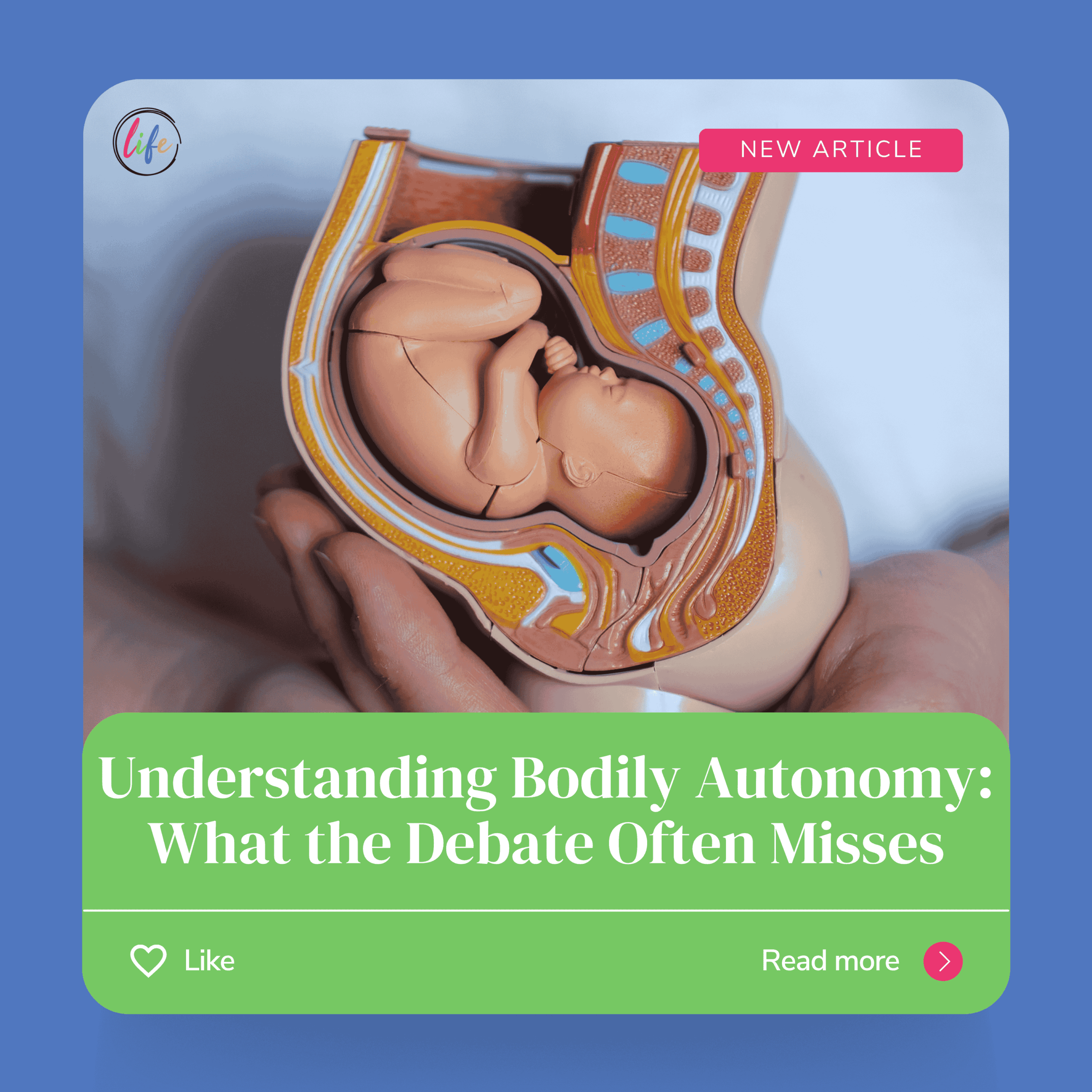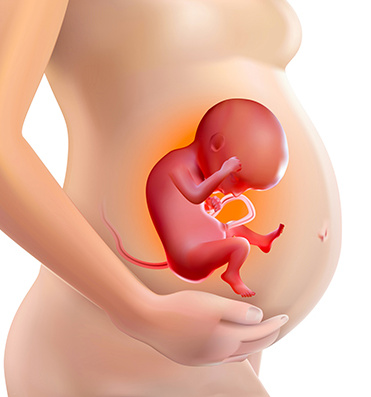
“My body, my choice.” A phrase often used to defend abortion. It argues that bodily autonomy justifies the decision to end a pregnancy. But a closer look at bodily autonomy and abortion reveals serious gaps that rarely receive the attention they deserve.
Bodily autonomy means every person should be able to govern what happens to their own body, a principle that underpins medical ethics and the importance of consent. That is why this right—and the consent it protects—remains a cornerstone of medical ethics. But like all rights, bodily autonomy has limits, most notably when it impacts the life of another person. Here are three critical principles often ignored in the bodily autonomy argument:
1) A Fetus Is Not a Body Part

Bodily autonomy assumes that abortion is simply a woman choosing what to do with her body. But this argument quickly unravels when examined through the lens of fetal biology.
From the moment of conception, a new human organism exists with its own genetic code, sex, and biological development pathway. What is developing in the womb is not merely potential—it is a human life already in motion.
Unlike an appendix or an organ, the fetus is not biologically part of the woman’s body. It resides in her body, but it is not her body. Ethically and biologically, this distinction matters.
2) We Place Limits on Bodily Autonomy in Other Contexts
We already accept restrictions on bodily autonomy when it poses harm to others. Parents cannot harm their born children in the name of personal freedom. Society does not permit assault, even if someone claims autonomy over their actions.
If the fetus is human—and science confirms this to be true—then abortion is not a simple private act. It is an action that ends the life of another human being. No right over the body includes permission to take the life of another. In fact, the right to life itself is a fundamental human value. It should be protected on the objective basis of CORE genetic identity – CORE humanity. Yet, with abortion, we allow one human being to subjectively end the life of another human being. We do not allow this in any other context.
We must weigh bodily autonomy in abortion against the life of the one developing in the womb.
3) Medical Ethics Protect the Vulnerable
We must weigh bodily autonomy against the responsibility not to cause harm. Medical professionals must consider the well-being of all human lives involved in any decision, especially when one is more vulnerable than the other. Yet, in the abortion debate, the unborn child is often excluded from this ethical equation.
Fetal rights represent a question of medical consistency. We treat pre-term babies, perform fetal surgeries, and protect infants in neonatal care. In each of those cases, we recognize the unborn or newly born child as a patient. So why is that recognition erased when the topic is abortion?
The Bottom Line: Bodily Autonomy and Abortion Are Inseparable from Ethics
To argue for abortion based on bodily autonomy alone ignores the reality that two lives are involved—one dependent, one developing, but both deserving of consideration. Bodily autonomy is a vital principle, but it is not absolute. The unborn are not property or body parts. They are human beings.
Learn more about the various stages of fetal development (conception, first, second, and third trimester) and don’t forget to follow us on social media (Facebook, Instagram, and TikTok).